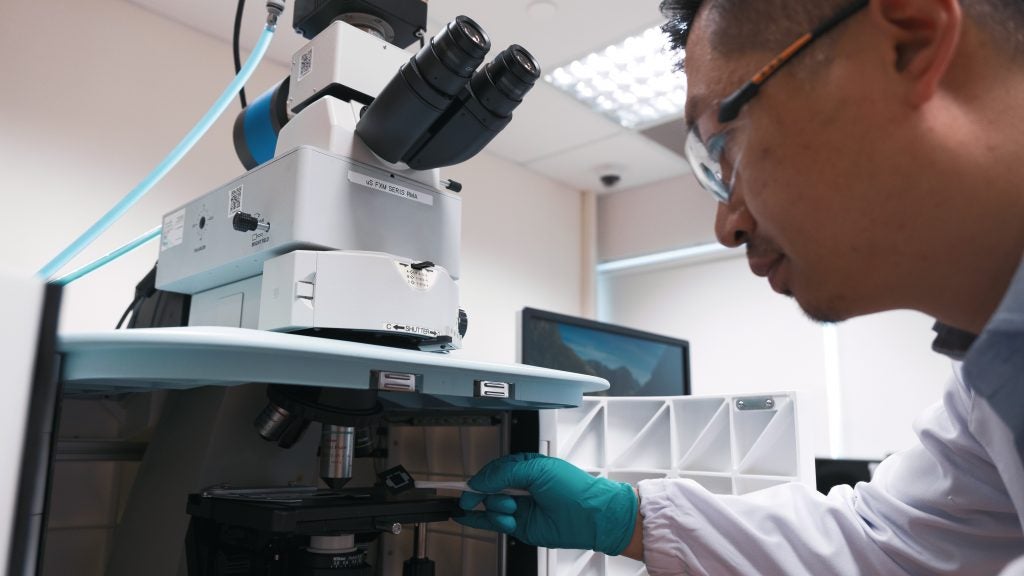
Spatial Computing is an immersive technology that blends both digital and physical environments. Assistant Professor Gabriel Lipkowitz from the Division of Industrial Design (DID) had seen the potential of this technology since 2023, when he was still a PhD student at Stanford, which led him to begin his research in the field.
When he joined DID in late 2024, he had seen interest in the technology during hackathons at the NUS Smart Systems Institute (SSI) and noticed existing events held for secondary school and polytechnic students in the Apple Developer Centre. However, he realised there was a significant lack of such events at the university level. With NUS located close to the recently opened Apple Developer Centre in Singapore, one of only four in the world, Asst Prof Lipkowitz saw a unique opportunity to generate more interest in spatial computing.
Asst Prof Lipkowitz, leading the Interactive 3D Design (i3D) Group from DID, together with Apple Certified Trainer Mr Jia Chen Yee, co-organised the world’s first university hackathon dedicated to spatial computing using the Apple Vision Pro. It was hosted at the NUS Smart Systems Institute (SSI) and the Apple Developer Centre in Singapore from 5-8 August 2025.

Organising the world’s first university Spatial Computing Hackathon came with its challenges, from sourcing specialised software and hardware for the specific tech to assembling and preparing an experienced team of mentors capable of guiding participants in this leading-edge tech.
The hackathon was open to all university students in Singapore, attracting more than 50 students from various institutions. Many had no prior experience with the Swift programming language needed to build the spatial apps. But with a one-day introduction to Swift and visionOS from both the student mentor team and Apple Certified Trainer Mr Jia, the participants built Apple Vision Pro apps from scratch in just four days. These apps addressed challenges in areas of healthcare that could utilise the technology, such as reminiscence-immersion therapy for dementia, sports training and rehabilitation and more.
After forming teams on day one, the hackathon began in its full intensity on day two. Participants received guidance from domain experts and mentors as they planned and built their apps.
The mentor team, comprising student researchers from the i3D Group, was trained for a month and represented various disciplines:
- Arnav Goel (School of Computing)
- Andreas Garcia (Exchange Student, KTH Royal Institute of Technology)
- Maahir Garg (School of Computing)
- Danikh Nizam (DID)
- Liang Li Yee (DID)
- Tiffany Tay (Department of Architecture)
- Pavithra Srinivasan (Computer Engineering)
After two days of intense collaboration, development and refinement, the grand finale came on the final day of the workshop on 8 August. The teams presented their prototypes at the Apple Developer Centre through live demos and interactive storytelling.
The panel of experts who were invited to evaluate and provide insightful feedback to the participants include DID’s Associate Professor Yen Ching-Chiuan, Associate Professor Tan Chek Tien from the Singapore Institute of Technology and Ms Yi Yuan, Co-Founder of Hiverlab, a company specialising in immersive spatial intelligence.
Three overall winners were recognised based on Best Design, Best Technical Implementation, and Best Use Case. One of the winners was PhoboSphere, which tackled common phobias such as arachnophobia, through virtual exposure with varying levels.
Asst Prof Lipkowitz and his team were excited by the energy they observed during the hackathon. “We have kicked off a brand-new community, Spatial Singapore, for visionOS developers, students, and everyone passionate about spatial computing,” he announced on his LinkedIn page.
Spatial Singapore held its first meetup on 20 August, where it showcased winning projects from the hackathon. Interested participants can sign up for future monthly meetings here.
To learn more about Spatial Computing and its community in Singapore, a Discord channel has also been created here.
Find out more about the Interactive 3D Design Group and their projects here.





